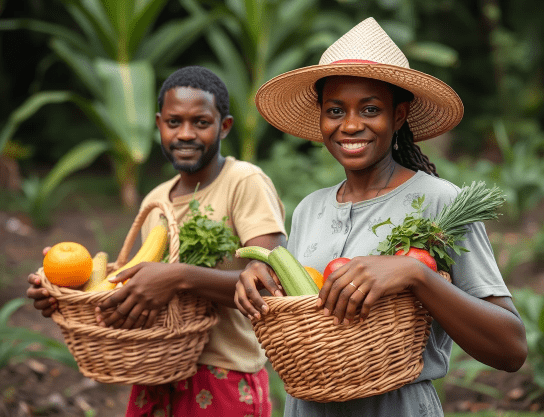Farmers warned to prepare for hurricane season

As the hurricane season threatens to batter the island once again, the silent backbone of Jamaica’s food supply finds itself on the front lines. Small farmers, who produce the lion’s share of what we eat, are being urged to prepare not just for survival, but for resilience.
The appeal from RADA’s Principal Director, Marina Young, is both urgent and revealing. More than 90 percent of Jamaica’s farmers operate on plots of land under five hectares. They are the unsung heroes of our kitchens and markets, yet they are among the most vulnerable when disaster strikes.
Young’s reminder is not simply about stocking fungicides or checking for falling wires. It is a call for a cultural shift in how we approach agriculture and disaster preparedness. Too often, we hear about rebuilding after the fact, when crops are lost, livestock wiped out, and livelihoods in ruin.
By then, the price of inaction is paid in hunger and hardship. The cost of preventative action may feel high to a struggling farmer, but the cost of doing nothing is often far worse.
The reality is this. Jamaica’s food security depends on the readiness of those who work the land. Not just the big export farms or the government-backed initiatives. It rests on the shoulders of farmers in Clarendon who rise before dawn to tend to their goats. On the hillside planters in St Mary battling soil erosion with little more than their will and whatever money they can scrape together for tools. These farmers cannot be left to face disaster alone.
It is promising to hear that ODPEM is working with farmers on recovery strategies. But real resilience will require more than workshops and brochures. It demands practical, sustained support. Access to low-interest loans for disaster-proof infrastructure. Government-subsidised seed banks and storage solutions. Technical assistance on climate-smart farming practices that match Jamaica’s topography.
The hurricane season is not just a weather event. For rural Jamaica, it is a test of survival. If we are serious about protecting our food basket, we must move beyond empty talk. The next storm will not wait for bureaucracy to catch up. Farmers must act. But so too must policymakers, agri-businesses and every Jamaican who understands that food security is not a distant concept. It is the ground beneath our feet. Literally.



